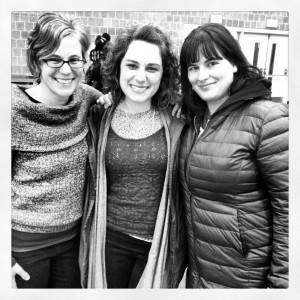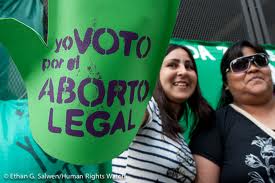SWRJ attended the Civil Liberties and Public Policy Conference at Hampshire College in Amherst, MA last week (http://clpp.hampshire.edu/). We had an incredible time meeting the amazing activists that have helped to foster our growth thus far and met many more that we know will be crucial supports in the future. Being in the same physical space as these incredible individuals helped us to feel more involved in the community that we’ve reached out to from a far.
When planning for CLPP, we originally wanted to create a survey to discover whether participants and presenters at the conference thought that an organization like ours could be of use. A few hours into the conference, however, it was clear that no survey was needed as the the response we got from activists, students and social workers alike and from all corners of the U.S. was a resounding “YES!” “We need you!” Social workers from all different disciplines, excited to hear of our existence, came to our table to tell us stories of clients at their work who desperately needed help accessing reproductive health services and were not provided with appropriate information or options counseling. This anecdotal validation of what we have also experienced to be true as social workers gave us a clear picture of what a crucial support and true resource for social workers across the country this organization has the potential to be.
Here’s a glimpse into a few of the awesome workshops we attended!
Abortion Access internationally
Turkey
Abortion in Turkey was outlawed in 2012. Progressives believe that the Islamic government changed the topic of conversation to abortion to divert people’s attention from the mass violence that was occurring between Muslims and Christians in the country. This battle began in 1983 when the Turkish government outlawed abortion after 10wks of gestation. Since then the mass privatization of public health clinics has occurred and the government’s message to women is that they should have large families. Islam=reproduction, pro-Islam, conservatism of the government. It was interesting to see so many parallels in the abortion debate going on in Turkey and the United Sates. It’s important that we learn from Turkey to keep abortion legal in the U.S. Abortion and abortion activism in Turkey can give us an idea of what tactics we can begin to use in the U.S. to combat those that restrict or deny access to women. Progressive message: “what are you doing with the children who already exist? Letting them get raped and starve”. Re-interpreted the Qur’an in another way, as pro-abortion – Muslim woman: “how can it be a sin if God sees my struggle?” Eventually, the country united around this ban on abortion for any reason, by way of rallies, protests, etc, and eventually the govt. withdrew the ban.
Uruguay/Latin America
In Latin America, it is estimated that 95% of abortions are unsafe, only 3 countries in Latin America have legal abortion for any reason: Guyana, Uruguay, Cuba, Mexico D.F. Chile, Nicaragua, Honduras, Dominican, El Salvador, outlawed therapeutic abortion stating: “there are enough scientific advancements that abortion shouldn’t need to happen.”
Uruguay recently legalized elective abortion. Some of the tactics used throughout the campaign were
– Raising awareness
– Right to life for women
– Human rights, people know about what it’s like to fight for other human rights in this country, so were able to connect to this
– Showed mainstream support from all different parts of society
Africa
Growth of the Christian right in Africa/ exposure to this sect over media and TV has largely increased the stigma surrounding abortion in many parts of Africa. Originally, Africans didn’t want to talk about abortion, but they weren’t staunchly against it like the Christian right is. Now that these religions are inundating African society, abortion is becoming more taboo.
Reflections:
This conference provided a small taste of abortion access internationally and also presenting us with ideas for the abortion movement in the U.S. One thing I found to be interesting was hearing the similarities of the abortion debate in other countries and the abortion debate in the U.S. I think that some of the tactics used in Turkey and Uruguay may be useful in the U.S., but some not as much. Uruguay and Turkey are both countries where people have had to fight against other human rights violations and so the general population seems to be able to understand this as exactly that. The U.S. has a large population of people who have not themselves experienced injustice in any real or impactful way, making this struggle more difficult to relate to. These countries also place more importance on the community and the family as opposed to the individual as we generally do in the U.S. This makes it hard to steer the abortion debate in a direction that the majority of people in the U.S. can relate to. I was able to make a great connection with Marlene Gerber Fried at this conference who has great knowledge of abortion access on an international level.
Using Medicines to cause safe abortion internationally
This presentation by Susan Yanow focused on the right to access to safe abortion, knowledge about safe abortion and access to knowledge about medicines, primarily Misoprostol, that can safely end a pregnancy can belong to all women no matter where the person is living. This workshop described how the medicines used to induce an abortion work and how women around the world use them safely, both with clinicians and in situations where abortion is restricted. There was a brief overview of several different international organizations like Women on Waves and Women on Web who spread this knowledge, with a special focus on the Middle East North Africa region, where access to safe abortion is severely limited.
This workshop was an interesting perspective on how women in countries where misoprostol is available over the counter and abortion is illegal and inaccessible, can learn to safely use misoprostol to cause an abortion. The great part is that if the woman has any issues using the medicines, she can go to a hospital or clinic and be treated for a miscarriage as any medical professional will not be able to tell the difference. This would eliminate the possibility of a woman putting herself in danger by divulging her use of misoprostol.
Eugenics and Population Control:
This presentation made the point that the right to choose not to have children is only a part of the fight for reproductive freedom. The state has an ongoing history of policing communities of color by denying access to reproductive services, forced sterilizations, and controlling family formation through social services and legislation of those deemed by the state as “unfit to parent.” Panelists analyzed state intervention through an historical and medical lens, experiences of incarcerated women and mothers, and the politicized messaging around immigration as a scare tactic for population control. This workshop provided a deeper understanding of the right to birth and parent as an integral component of reproductive justice. During the presentation we heard about some qualitative research from Aline Gubrium on the effects of long-term Depo usage on women and it was found that Depo usage is being encouraged especially in low-income communities and the effects of long-term usage is not adequately being described to patients. We also heard a presentation by Courtney Hooks who works with reproductive justice in prisons. We watched a video of a woman who, when incarcerated, went in for a very basic procedure and left the procedure tand years later when she noticed she had stopped menstruating and wanted to have children, she found out that during that surgery, they had performed a complete and involuntary hysterectomy. This story was heart-breaking and left me disgusted. This woman has since become an activist for reproductive justice for incarcerated women.
Strategies for Fighting Abortion Stigma
I attended this workshop, because I was interested in seeing Heather’s presentation on stigma and was thrilled to hear from providers and administrators from Pre-Term, an awesome clinic in Cleveland, OH. I had the pleasure of meeting Dallas Schubert, and Toni Thayer who talked about how they go about combating stigma inside the clinic and in the community where the clinic is. We also heard from Poonam Dreyfus-Pai, who talked about reducing stigma by creating support for wo men in clinic like doula services, Katie Stack talked about her experience going into CPCs to find out what women were being told when they went in.
The workshop touched on how Policy-makers who use the phrase “safe, legal and rare” leave abortion stigmatized and those who have abortions ostracized, contributing to the vulnerability of providers, advocates and patients. In this workshop, we discussed strategies for creating a new dialogue around abortion that is grounded within the context of our lives as young people, parents, community members, allies and friends.
Heather Ault:
“Truth and power belong to those who tell a better story.”
“Abortion shines a bright light on your life.”
Messages of the antis – “we will win” – confidence
Pro-choicers – “We need to win” – framed as a struggle, a battle
Will v. Need to = law of attraction
Creating a full-spectrum doula practice:
In this workshop, we discussed how everyone deserves to have access to non-judgmental, emotional, physical, and informational support when moving through the full spectrum of choice. In recent years, the doula model of care has been expanding to include not only birthing support but also support for abortion, adoption, and prison reproductive healthcare. We got to hear how doulas from different practices are managing this landscape. We heard from Lauren Mitchell from the NY Doula Project, who have truly created a presence in the NYC hospitals to the point that doctors are actually waiting to start the procedure because the doula isn’t there yet. We got to hear how they dealt with the wide array of obstacles to gaining acceptance in the community. We also got to hear from a doula, Poonam Dreyfus-Pai, who works with the Bay Area Doula Project, a newer group doing the same work in California. We were able to learn from the road blocks that they are currently encountering when attempting to introduce the doula model into a hospital setting. I was able to get a lot of ideas for our hand holding program that we are developing here at CHWC and made some great contacts in Poonam and Lauren. They are aware that we are developing a program and are excited to help in anyway they can.





